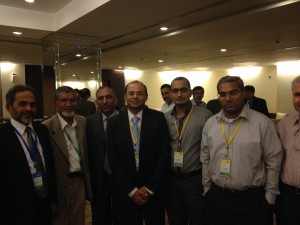
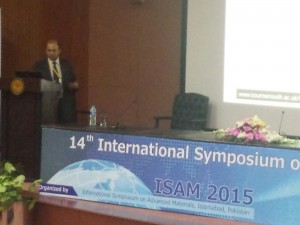
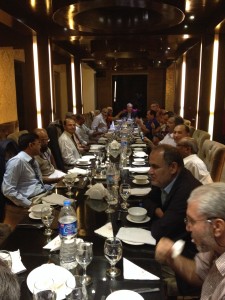
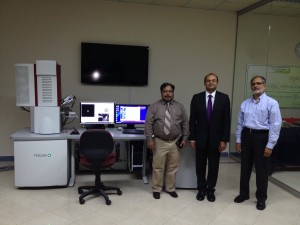
Dr Zulfiqar Khan was recently selected by invitation by the Pakistan President’s Highly Qualified Professionals (HQPs) Programme, part of PPQP, managed and administered by the Ministry of Federal Education & Professional Training Government of Pakistan.
This programme funded Zulfiqar’s participation in the 14th International Symposium on Advanced Materials Oct 2015 held at National Centre for Physics Islamabad as invited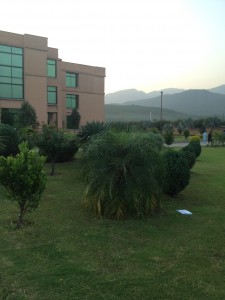 speaker and guest speaking at key universities and research institutes.
speaker and guest speaking at key universities and research institutes.
This conference is held every two years and has been successfully running for the last 28 years. This conference attended by high profile researchers from Bangladesh, China, Egypt, Germany, Japan, Jordan, Malaysia, Pakistan, Saudi Arabia, Singapore, Serbia, Turkey, UK (Bournemouth and Leeds) and US. The conference provided and excellent platform for disseminating latest research findings, exchange of ideas, networking and initiating research collaborations.
Zulfiqar presented latest findings in Surface Engineering through nano coatings (thin films 300-400 nm and up to 5 μm) incorporating corrosion. This research is conducted at the Sustainable Design Research Cluster with PGRs (Parisa Pashaei, Rizwan Bajwa and Hammad Nazir).
He also led the discussion panel on Surface Engineering & Ceramics as Panel Chair.
The Federal Minister for Planning, Development & Reform Professor Ahsan Iqbal spoke at the closing ceremony of the 14th International Conference on Advanced Materials ISAM 2015. He informed the conference delegates on the Government strategy for research & development.
This programme also included Zulfiqar’s invited guest speaking at key Universities and research institutes as Institute of Space Technology, National Institute of Vacuum Science & Technology NINVST, National Centre for Physics NCP and National University of Sciences & Technology NUST. He also held meetings with key staff including DG NINVAST, Director NCP, Deans NUST Mechanical and Chemical & Manufacturing Engineering, Rector GIK (Ghulam Ishaq Khan Institute of Engineering Sciences & Technology), researchers and students.
His participation in the ISAM 2015 and invited guest speaking has provided a platform for incubating international research and education collaborations and promoting BU as an international leader in nano materials & corrosion research.
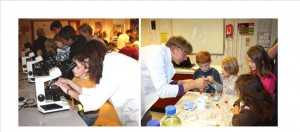
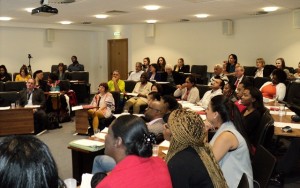
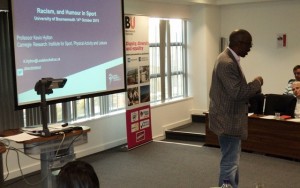
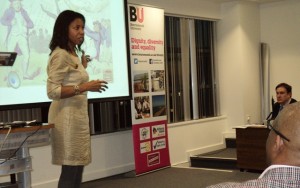
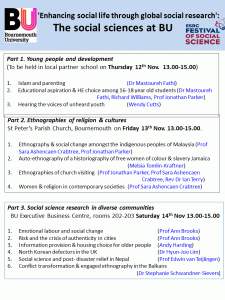

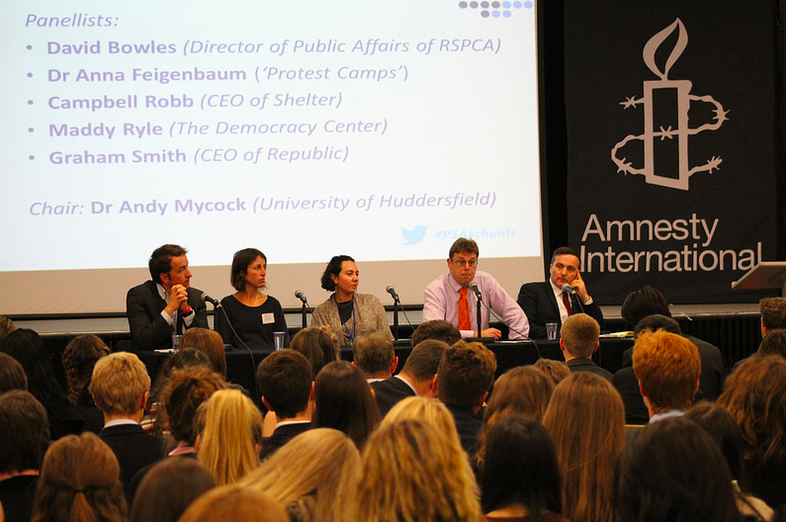
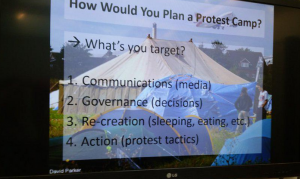
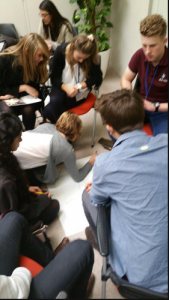
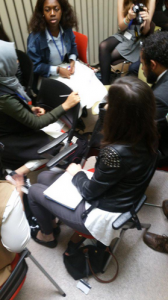
 of his participation in the event, Dr. Jackson – who also convenes the
of his participation in the event, Dr. Jackson – who also convenes the 

 Professor Jill Atkins of Henley Business School at the University of Reading will speak to the first of a new series of staff research seminars organized in the Faculty of Management on Wednesday, October 14, at 15:00 at Bournemouth House, BG14. Her topic, “Exploring rhinoceros conservation and conversation: The emergence of emancipatory accounting for ‘extinction’,” links problems of sustainability of natural resources with theoretical developments that seek to take better account of the environment.
Professor Jill Atkins of Henley Business School at the University of Reading will speak to the first of a new series of staff research seminars organized in the Faculty of Management on Wednesday, October 14, at 15:00 at Bournemouth House, BG14. Her topic, “Exploring rhinoceros conservation and conversation: The emergence of emancipatory accounting for ‘extinction’,” links problems of sustainability of natural resources with theoretical developments that seek to take better account of the environment.
 ong committee; d) resource constraints; and e) assumption that non-clinical research are exempted, which are of course overlap and interact each other, for not applying ethical approval in low income countries. They have also provided examples of ethical approval taken from other countries than the host countries and further go on to stress that junior researchers and students should be encouraged to be familiar with research ethical approval. In their paper, they encourage journal editors and peer reviewers to ensure ethical approval bein
ong committee; d) resource constraints; and e) assumption that non-clinical research are exempted, which are of course overlap and interact each other, for not applying ethical approval in low income countries. They have also provided examples of ethical approval taken from other countries than the host countries and further go on to stress that junior researchers and students should be encouraged to be familiar with research ethical approval. In their paper, they encourage journal editors and peer reviewers to ensure ethical approval bein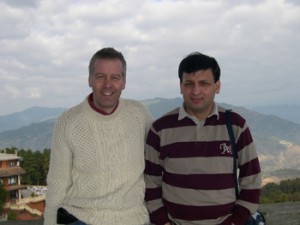 g granted for manuscripts based on empirical studies. This paper was co-authored by BU visiting faculty Professor Padam Simkhada and recently published in Nepal Journal of Epidemiology. The paper is freely available through the journal’s website
g granted for manuscripts based on empirical studies. This paper was co-authored by BU visiting faculty Professor Padam Simkhada and recently published in Nepal Journal of Epidemiology. The paper is freely available through the journal’s website 















 REF Code of Practice consultation is open!
REF Code of Practice consultation is open! BU Leads AI-Driven Work Package in EU Horizon SUSHEAS Project
BU Leads AI-Driven Work Package in EU Horizon SUSHEAS Project Evidence Synthesis Centre open at Kathmandu University
Evidence Synthesis Centre open at Kathmandu University Expand Your Impact: Collaboration and Networking Workshops for Researchers
Expand Your Impact: Collaboration and Networking Workshops for Researchers ECR Funding Open Call: Research Culture & Community Grant – Apply now
ECR Funding Open Call: Research Culture & Community Grant – Apply now ECR Funding Open Call: Research Culture & Community Grant – Application Deadline Friday 12 December
ECR Funding Open Call: Research Culture & Community Grant – Application Deadline Friday 12 December MSCA Postdoctoral Fellowships 2025 Call
MSCA Postdoctoral Fellowships 2025 Call ERC Advanced Grant 2025 Webinar
ERC Advanced Grant 2025 Webinar Update on UKRO services
Update on UKRO services European research project exploring use of ‘virtual twins’ to better manage metabolic associated fatty liver disease
European research project exploring use of ‘virtual twins’ to better manage metabolic associated fatty liver disease